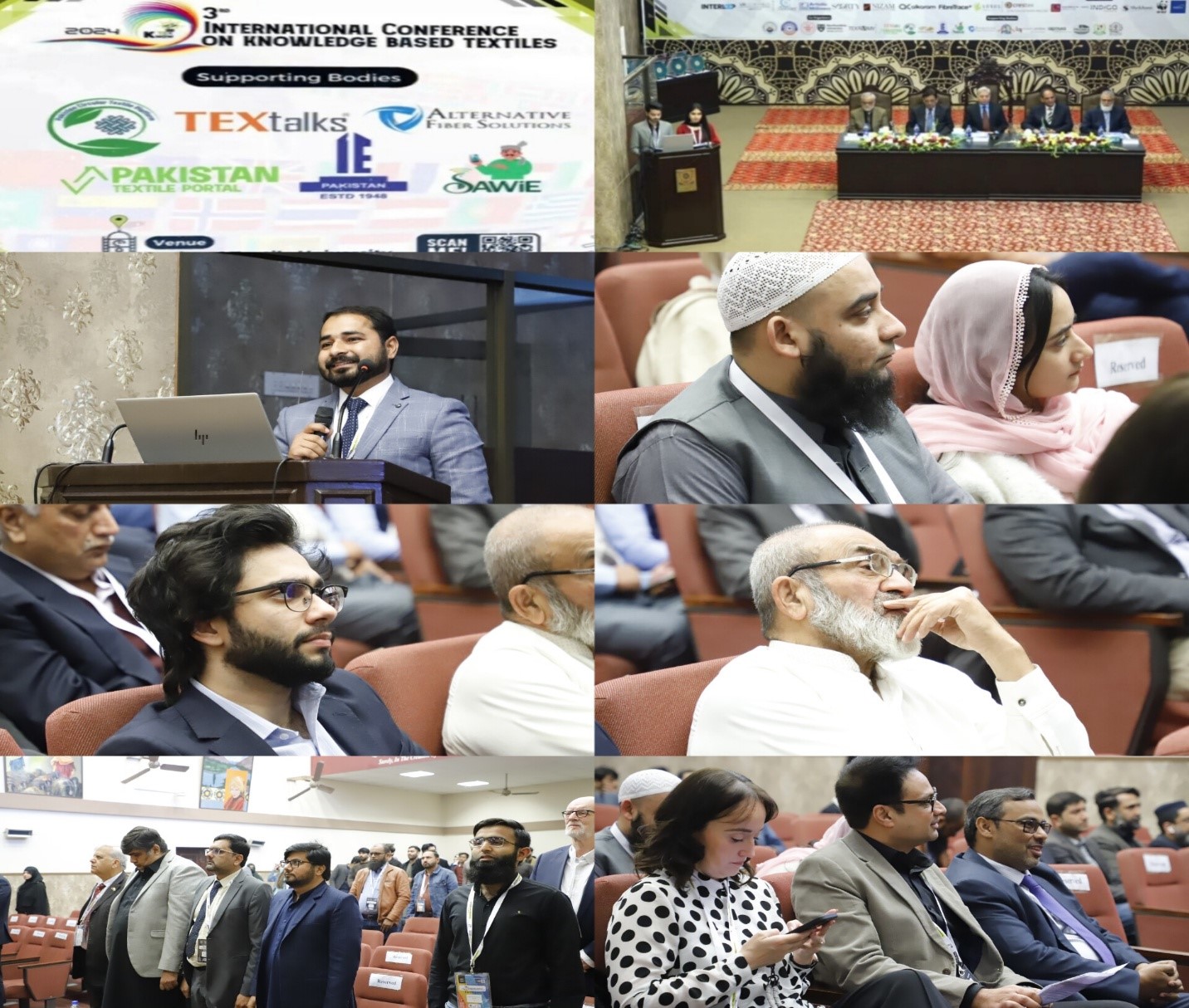The National Textile University (NTU) organized “the 3rd International Conference on Knowledge-based Textiles on March 5th and 6th, 2024, in Faisalabad, Pakistan. SAWIE took part as a knowledge partner working with the downstream cotton supply chain and exhibiting its strength in developing a traceability system for #farm2fashion.
Although Pakistan’s textile industry is a key contributor to its economy and a major global player, it faces significant environmental challenges. Predominantly powered by fossil fuels, the industry’s energy-intensive processes like spinning, weaving, dyeing, and finishing contribute to substantial carbon emissions. Additionally, the sector is a major water consumer and polluter, particularly in the dyeing and finishing stages, where large quantities of water are used and untreated effluents are often discharged, leading to water pollution and affecting local ecosystems.
The use of various chemicals in textile processing, if not managed properly, results in environmental contamination, posing risks to soil, waterways, and health. Moreover, the industry generates considerable solid waste, including fabric and yarn off-cuts, challenging waste management and disposal systems. The cultivation of cotton, essential for textile production, involves intensive water use and chemicals, contributing to soil degradation and biodiversity loss.
Recognizing these environmental impacts, Pakistan is increasingly focusing on adopting sustainable practices, such as renewable energy, water-efficient technologies, and sustainable cotton farming, to transition towards a more eco-friendly textile sector. This shift is crucial, given the industry’s significant role in the global supply chain and its international environmental implications.
At the conference, the SAWIE team, led by Mr Abdul Hanan, delivered a compelling presentation on how SAWIE’s digital agriculture platform offers traceability for value addition in textile production. SAWIE’s commitment to sustainability in cotton production and improving cotton farmers’ income is threatened by climate change.

